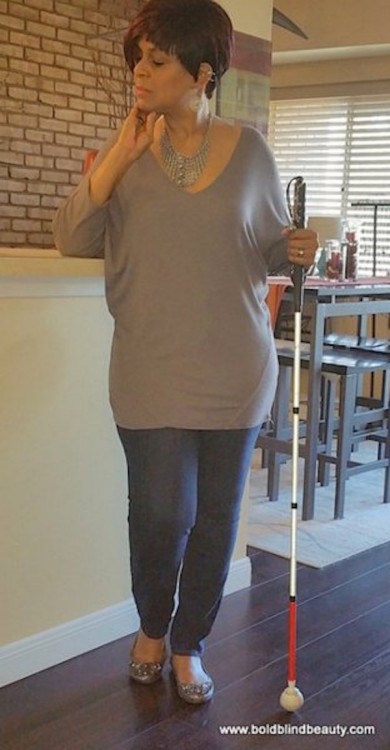When People Say ‘You Don’t Look Like You’re Blind’
It was a little over 48 years ago when I put on my first pair of eyeglasses, and the feeling of seeing clearly for the first time was indescribable. The transition was like leaving a dark movie theater and stepping outdoors on a bright sunny day. My eyes needed time to adjust to everything suddenly appearing clear and focused.
For 36 years, I enjoyed perfect vision provided I wore corrective lenses. That all changed 11 years ago with two words: macular hole. It began when I removed one of my contact lenses, and I looked in the mirror to see half of my face missing.
While I had never heard of a macular hole before, I learned the macula provides the sharp, central vision needed for reading, driving and seeing fine detail. A macular hole is a small break in the macula, which located in the retina, the center of the eye’s light-sensitive tissue.
Though all the statistics pointed to a favorable prognosis, it didn’t work out that way for me unfortunately. I’m reduced to counting fingers, since I can no longer see the eye chart. Developing macular holes in both eyes has destroyed my central vision.
I’ll never forget the devastating news. “Ms. McCoy,” the doctor said, “I’m so sorry to tell you there is nothing more we can do for you.” Those simple words confirmed my worst fears — I was now legally blind.
The doctor told me I lived with high myopia (extreme nearsightedness) all my life. He went on to say that even though I did all the “right things,” due to the high myopia, macular holes, surgeries and glaucoma, my vision loss was irreparable.
Appearances Can Be Deceiving
Prior to losing my sight, I used to think that when a person used a white cane, it meant they were totally blind (no light perception). I was wrong. The range of sight loss is enormous and differs greatly from one person to the next. There really is an immense gray area.

To give you an idea of my sight loss, imagine yourself in a dense fog with visibility being only a couple of inches in front of your face. Your equilibrium is off and your steps unsure. You feel claustrophobic, as the fog is so heavy. Stumble, fall, repeat. It’s unending, and you wish it would just go away. You wake with it, you go to sleep with it and in between waking and sleeping you have to come to terms with the fog.
Once you acknowledge the fog is not going to dissipate, you find a way to navigate through it by learning new techniques. With time and patience, you gradually adapt until you become adept at working within the fog.
To the outside world you “appear” as if all is well and you can see clearly. And since you use a white cane to safely navigate the world, many times people will say to you, “But you don’t look like you’re blind.”
People don’t understand how I can dress stylishly or put on my makeup. The expectation that all blind people have to appear or behave a certain way is a huge misconception. Quite simply, the people we were prior to the loss of our vision, and the things that brought us joy, are still intrinsic to who we are today.
Handling the Stigma on Sight Loss
What I’ve found since losing my sight is there are so many stylish women who are blind or have sight loss that I felt it was time for a fashionable icon to represent them. Abigail, the white cane icon and mascot on my blog Bold Blind Beauty, is a beautiful image that evokes power, independence, chicness, confidence and success — a woman on the move stepping forward with purpose.
Once, an eye doctor told me that it would be a tragedy for me to learn how to use the white cane when, in fact, I believe the real tragedy is the shame many people feel when losing their eyesight. Having a visual image that evokes beauty, confidence and purpose is one way to change the stigma surrounding blindness.
Follow this journey on Bold Blind Beauty.
The Mighty is asking the following: What is a part of your or a loved one’s disease, disability or mental illness that no one is aware of? Why is it time to start talking about it? If you’d like to participate, please check out our Submit a Story page for more about our submission guidelines.
